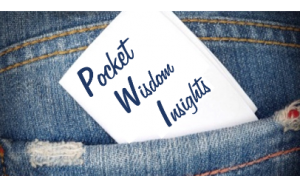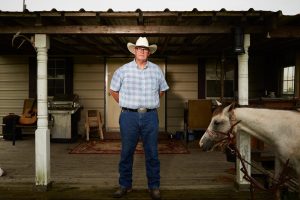
Opening Insights: Sustainable Resources and Power
Amongst the herd of high-tech businesses and digital solutions, there stands one  company that is on a mission to put the personal human experience into the impersonal digital age. As a publisher, using its proprietary platform, Awareness Communication Technology, LLC (better known as AwareComm®) assists individuals and industries in bringing their ideas to life through true collaboration and solidarity-based synergy. The method to their magic is found in the unique blend of integrated technology, proven methodology, human understanding and business strategy.
company that is on a mission to put the personal human experience into the impersonal digital age. As a publisher, using its proprietary platform, Awareness Communication Technology, LLC (better known as AwareComm®) assists individuals and industries in bringing their ideas to life through true collaboration and solidarity-based synergy. The method to their magic is found in the unique blend of integrated technology, proven methodology, human understanding and business strategy.
 As a Microsoft Gold Partner, AwareComm® is committed to maintaining the integrity of the technology world, while adhering to a high level of ethics in sustaining humanity.
As a Microsoft Gold Partner, AwareComm® is committed to maintaining the integrity of the technology world, while adhering to a high level of ethics in sustaining humanity.
As noted in its name, AwareComm® focuses on awareness and communication. These elements are fostered through the unwavering roots of the company, that being the 4 Absolutes: Honesty, Selflessness, Purity of Intention and Reality.
The 4 Absolutes are the spiritual foundation and scriptural guidance within the recovery industry. They are also basic principles for living healthy, happy and productive lives at home, work, worship and play. These 4 Absolutes are vital especially in a world that is often filled with demands, harshness and disappointments.
 Pocket Wisdom Insights (PWI), a division AwareComm, not only implements these 4 Absolutes in targeted communities, but provides the resources to enable these concepts to permeate complete cultures.
Pocket Wisdom Insights (PWI), a division AwareComm, not only implements these 4 Absolutes in targeted communities, but provides the resources to enable these concepts to permeate complete cultures.
Culture is the combined perceptions, attitudes, thinking and behaviors of any group of people. Culture is the soul of any family, community or organization. If the culture supports unhealthy interpersonal skills, the result is unproductive activities and dysfunctional relationships. If the culture supports healthy interpersonal skills, the result is productive activities and fulfilling relationships.
The 4 Absolutes are the keys to implementing “being in the world” (harsh, dysfunctional disappointing) and “being of the world” (honesty, selflessness, purity of intention and reality).
Informational Insights: Illustrating the Principles
Practical research (anecdotal evidence) clearly indicates the validity of these 4 interactive and interdependent principles as evidenced by the following article:
Invisibilia: How Learning To Be Vulnerable Can Make Life Safer
Angus ChenTommy Chreene with his horse, Lady, at home in Meaux, La. Chreene spent 26 years working on offshore oil rigs in the Gulf of Mexico. While working on the Ursa project, he was part of a program designed to get the workers to open up emotionally with one another.
Men who worked on oil rigs lived by certain rules. They were tough. They worked under any conditions. They didn’t ask questions. It was this way as far back as Tommy Chreene, 60, who started working on rigs in the Gulf of Mexico back when he was 15, can remember.
Back then, it wasn’t unusual to see someone die on an oil rig. Chreene remembers the death of one man who had just finished a shift. He was standing before an enormous pipe that the workers twisted into the ground and held in place with a handle. The man kicked the handle, and the tension on the pipe released. It caught the man’s ankle as it whipped around.
“In about three seconds, it spun him around about 80 times,” Chreene says. A few feet from the man was a post, and “his head was hitting that post like a rotten tomato.”
They got 15 minutes to mourn after watching their friend and colleague die, but that was it. “I mean, that hole cost a lot of money,” he says. “We got to go to work.” Even though the men faced the risk of death every day, Chreene says they never showed any vulnerability. This made the work even more perilous, because the men didn’t ask for help, didn’t admit if they weren’t up to a certain job. But in the 1990s, the oil companies started exploring in much deeper water — more than 3,000 feet below the surface of the Gulf. That meant whole new challenges, logistically and technologically.
In 1997, Shell began building a deepwater platform, Ursa — a $1.45 billion behemoth that would stand 48 stories tall and, when completed, would become the world’s deepest offshore well. Rick Fox, the asset leader for Ursa, says executing something this vast was a struggle, beyond the scale of anything they’d ever attempted. Something needed to change, he says, if Ursa was going to be built and operated safely.
“We had to look at the organization and see if we could do something better,” Fox says. “And who knew what that was going to open?”
Then Fox got a call from a woman named Claire Nuer. She was a leadership consultant, a Holocaust survivor and a devotee of California New Age circles. She had heard about the seemingly insurmountable project, and she said she could help. When Fox started talking about technical problems like drilling schedules, she stopped him. She said he wasn’t dealing with his real problem: his fear. The change Fox needed, she said, to make Ursa work, was in how the men dealt with their feelings.
That wasn’t going to be easy. These men had been raised on the rig code, at work and at home. Fox was raising his son, Roger, with it, although it was getting in the way of their relationship. Roger remembers the first time he heard the term “Phillips head screwdriver,” when his dad had asked him to get one.
“I didn’t think to say, ‘Hey, Dad … I don’t know what you’re talking about,’ ” Roger Fox says. “So I went to the shop to look for something, I had no idea what it was, and felt stuck ’cause — I didn’t want to be vulnerable.”
“We’re guarded. We’re fearful. We’re so angry at each other because we don’t see each other, really,” Fox’s son, Roger, says now.
Nuer felt that management problems had a lot more to do with interior struggles than with the kinds of things typically taught in business school. Creating environments where people supported each other, she thought, would free them to make great contributions. For people to make those kinds of fundamental changes, it helped to have the involvement of not just their co-workers but their family members, too.
Fox was moved by Nuer, and convinced his son Roger to attend one of her seminars with him in California. There’s a recording from back then where Roger tells his father that he’s intolerant of weakness. “Yeah, that would be me,” Fox replies. “Roger, you know, I take this really seriously. It’s ruined a lot of our good times together.”
Fox says the session worked. It transformed his relationship with his son. He thought that if Nuer could cut through 18 years of family tension, then she just might be what he needed for the Ursa project.
Over the next year and a half, while Ursa was under construction, Fox had more than a hundred oil rig workers come to Shell’s headquarters in New Orleans. Nuer’s company and other groups came and put the men through a series of exercises designed to open them up.
George Horn was one of those men. He was not receptive to sharing. “This has nothing to do with an oil field. What is this for?” he says. A lot of the men felt the same way. One exercise asked them to draw their families and personal timelines and stand before the group and talk about it.
“They began to tell the story of their lives, and some of them are not real happy,” Horn says.
The men told stories of failed relationships and alcoholic parents. They talked about how they were hungry as children. “It felt vulnerable. You put your personal life out there for everybody to hear and everybody to see,” Horn says.
Once one man did it, others followed suit. They drilled deeper and deeper. Tommy Chreene, who had a tough reputation, broke down and wept before the group as he talked about his son’s terminal illness. “I was weeping like a baby,” he says. “And nobody ever come to me and said, ‘Aw, you big crybaby.’ “
The sessions were long and intense. The men went through the exercises from 6 in the morning to 11 at night. Mark Gatlin, one of the workers, says one of the Ursa managers completely dissociated during a session.
“I guess through the exhaustion or the constant, you know, diving into emotion kind of thing. He absolutely forgot — he just kinda woke up and said, ‘Where am I?’ ” Gatlin says. The man forgot his own name, who he was — everything. They sent him to a doctor, and he recovered.
Some of the men had to stand face to face and ask questions like, “If there was one thing you could change about me, what would it be?” Gatlin says he heard some pretty rough responses: “I had people tell me I don’t listen. I had some people tell me, ‘You talk too much.’ I’d say, ‘Tell me more.’ “
Gatlin says he started realizing things about himself he had never noticed before. The men were learning about each other and about themselves. Later, they learned about running an oil platform safely. Robin Ely, a Harvard business school professor, and Debra Meyerson, a professor at Stanford, began studying Fox and Nuer’s experiment.
In an article in the Harvard Business Review, Ely and Meyerson write that the men had changed. By allowing themselves to become vulnerable to one another, they had altered “their sense of who they were and could be as men.”
Ely says that as the men became more open with their feelings, other communication was starting to flow more freely. “Part of safety in an environment like that is being able to admit mistakes and being open to learning — to say, ‘I need help, I can’t lift this thing by myself, I’m not sure how to read this meter,’ ” she says. “That alone is about being vulnerable.”
That helped contribute to an 84 percent decline in Shell’s accident rate companywide, Ely says. “In that same period, the company’s level of productivity in terms of numbers of barrels and efficiency and reliability exceeded the industry’s previous benchmark.”
The old way of being an oil rig worker — the stoniness, the complete self-reliance — Ely thinks it was endangering the workers and holding back efficiency.
And the men themselves changed. “They’re opening up and becoming more themselves,” says Art Kleiner, an author who has studied corporate cultures for decades. He says the men let go of the self-image of a steely rig hand and embraced a different version of themselves.
“[Fox] did it,” says Floyd Guidry, one of the Ursa workers. “Built a new kind of person. Maybe not a new physical man, but a new mental man.”
The men are glad for the change.
“I’m so grateful my son did not have to wait till he was 40-something years old to have the experience of being able to question his own habits and his own way of thinking about things,” Fox says. “My son is a beautiful human being, and I cannot get enough of being around him.”
Horn feels the same way: “I’m glad the old way’s gone. It was no fun whatsoever.”
Invisibilia Source: //www.npr.org/sections/health-shots/2016/06/17/482203447/invisibilia-how-learning-to-be-vulnerable-can-make-life-safer
Pillars to Stand On
Woven throughout the above article is the freedom to be completely:
- Open and honest;
- Think of others outside ourselves;
- Put agendas on the table without manipulation; and
- Live in reality by providing:
- Attention – To look at another person and see them for who they are. To not judge them as right or wrong, good or bad.
- Respect – To accept another person without needing to change him or her.
- Appreciation – To believe that another person has value (or what they experience has value) even if we do not know what this value is.
Once active, the power of the 4 Absolutes ripple through individuals and groups, resulting in cultures based on trust, safety, empowerment and dependability.
 To learn more about how to introduce, implement and maintain these foundation cornerstones, explore the Pocket Wisdom Insights (PWI) programs for home work, worship, and play. PWI offers practical solutions for implementing these concepts as down to earth everyday tools for many of life’s challenges.
To learn more about how to introduce, implement and maintain these foundation cornerstones, explore the Pocket Wisdom Insights (PWI) programs for home work, worship, and play. PWI offers practical solutions for implementing these concepts as down to earth everyday tools for many of life’s challenges.
Researcher: Arthur Cunningham Writer: Kerri Zajaczkowski
Possibilities for Consideration: Principles to Stand On
Take a moment and examine…
- As you reviewed the material above, what stood out to you?
- What is the potential impact, economically and/or socially?
- What action is needed to stop or support this idea?
- You may want to consider whether you:
- want to be aware of,
- should become supportive of,
- would want to be active in this topic?
Add Your Insight: Discover Solutions
I have been impressed with the urgency of doing. Knowing is not enough; we must apply.
Being willing is not enough; we must do.
LEONARDO DA VINCI


